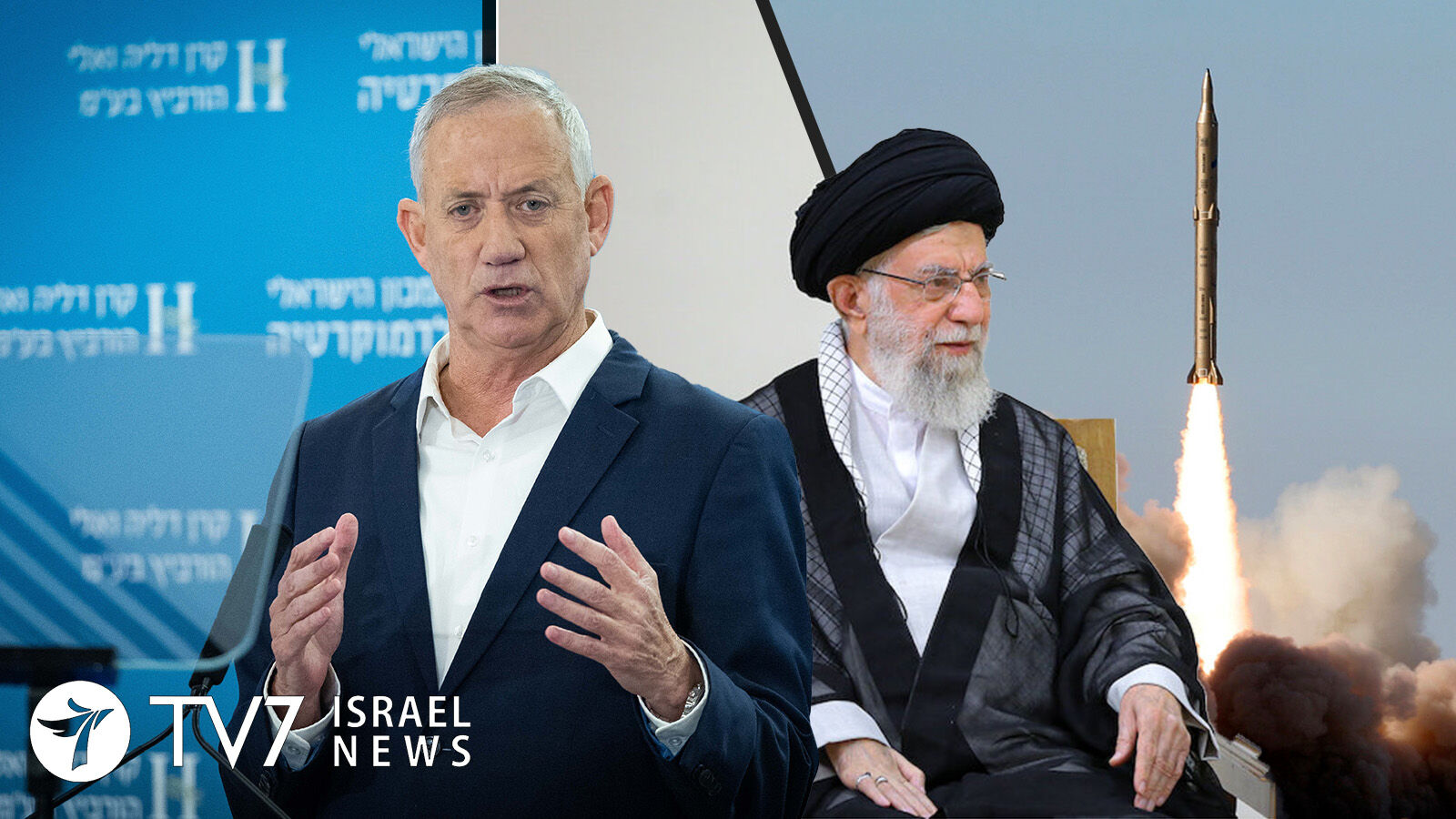Jerusalem will work with world powers to have an impact on any agreement that may result from efforts to revive the Joint Comprehensive Plan of Action (JCPOA) with Tehran, Israeli Defense Minister Benny Gantz announced.
By Erin Viner
Iran and the United States are expected to return to indirect talks in Qatar amid a push by the European Union to break a months-long impasse in the talks to resurrect the 2015 nuclear pact.
While the Jewish State is not a party to the negotiations, it is extremely concerned over the outcome; and its long-standing threats to take unilateral military action against Iranian nuclear development weigh deeply on Western capitals.
“With the expected or possible resumption of the nuclear talks, we will continue to work together with the United States and other countries in order to make our position clear and influence the crafting of the deal – if there is such,” Gantz told reporters yesterday.
“It would be proper to make clear that Israel does not oppose a nuclear deal in itself. It opposes a bad deal,” he said.
Israel has drawn closer in recent years to US-aligned Arab states which share its concerns over Iran and it has offered them defense cooperation.
Reiterating his disclosure from last week of the formation of the “Middle East Air Defense Alliance (MEAD) with unidentified regional partners to counter attempted Iranian attacks on regional nations with rockets, cruise missiles and unmanned aerial vehicles (UAV, drone aircraft) that “has already enabled the successful interception of Iranian attempts to attack Israel and other countries,”Gantz said there were “additional operational dimensions” to the cooperation although he declined to elaborate.
Meanwhile, Iranian state TV reported that the Islamic Republic carried out a second test of its Zuljanah satellite launcher on Sunday – in a move likely to raise tensions with Washington just ahead of the resumption of JCPOA talks.
Israel, the US and their regional Arab partners fear such long-range ballistic technology used to put satellites into orbit could also be used to launch nuclear warheads.
The Zuljanah is a three-stage satellite launcher using a combination of solid and liquid fuels. According to a report by Iran’s semi-official Fars News Agency, it can carry loads of up to 220 kilograms at an orbit of 500 kilometers, weighs 52 tons, is 25.5 meters in length, and was named for the horse of Imam Hussein, the grandson of Islam’s Prophet Muhammad.
“The third development phase of the Zuljanah satellite launcher will be based on a combination of information gained during today’s launch,” an Iranian Defense Ministry Spokesperson told state television, without clarifying whether the test was successful.
The White House voiced concern over the successful February 2021 launch of the domestically-produced satellite launcher for the first time, which Tehran claimed was aimed at helping achieve its “most powerful rocket engine.” Criticizing the most recent test as “unhelpful and destabilizing,” the administration of US President Joe Biden reiterated its commitment to imposing sanctions and other punitive measures to prevent further advances in Iranian missile development.
The US and its allies believe Iranian ballistic missile development violate United Nations Security Council Resolution 2231, and has demanded that the Islamic Republic cease all activity related to ballistic missiles capable of delivering atomic bombs. The US intelligence community’s 2022 threat assessment concluded that the satellite launches “shortens the timeline” for Iran to acquire intercontinental ballistic missiles due to its utilization of “similar technologies.”
“Iran has consistently chosen to escalate tensions,” US State Department Spokesman Ned Price responded when asked at a press conference about launch preparations earlier this month.
Iran, which routinely lays claim to possessing technological advances in its armed forces, has one of the biggest missile programs in the Middle East.
The Fars news agency reported in early June that the Iranian Space Agency revealed it was working to prepare seven more satellites for launch into orbit.
Additionally, Iran’s Islamic Revolutionary Guards Corps (IRGC) announced the successful launch of satellite in Semnan province east of Tehran this past March, following the unveiling of its own space program in April 2020.
